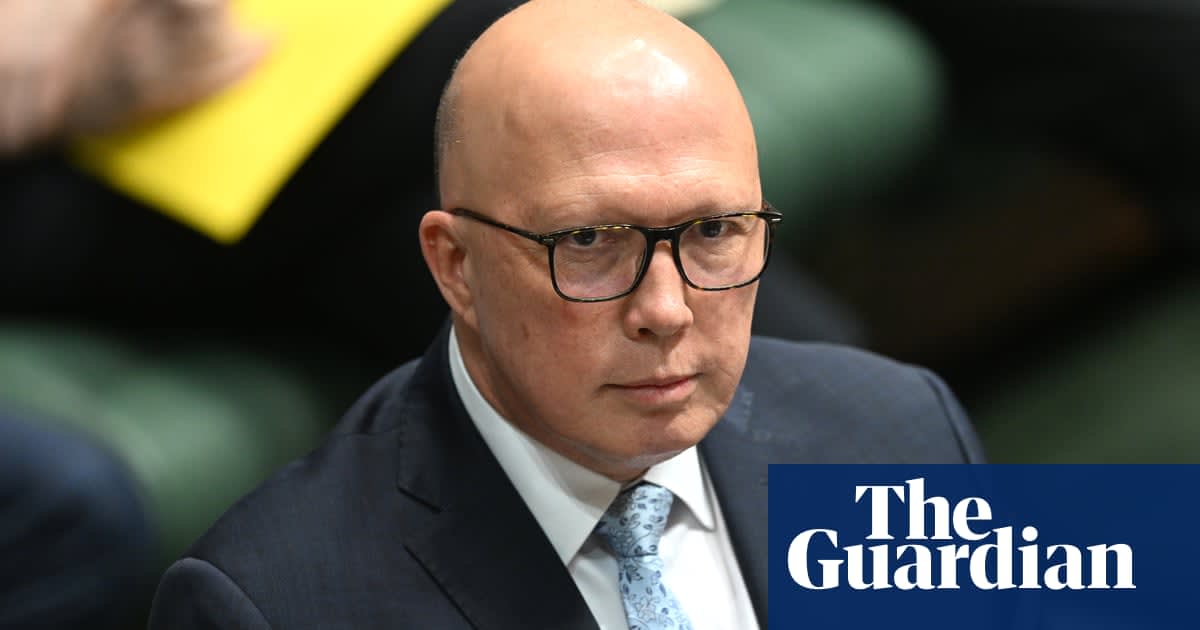Former immigration official Abul Rizvi believes the current planning level for partner visas is acting as an ‘illegal’ de facto cap
The Coalition’s proposed cuts to Australia’s permanent migration would require Peter Dutton to legislate to allow a cap on partner visas, a migration expert has warned.
Abul Rizvi, a former deputy secretary of immigration, believes the current planning level for partner visas, introduced by the Coalition and continued by Labor, is acting as an “illegal” de facto cap and would need to be removed.
The Migration Act states that the partner and child visa categories are demand-driven but, in practice, only 40,500 partner visas are given a year, meaning surplus applications result in longer wait times for applicants.
“The government has said that is a notional number, not a cap. But to me it quacks and walks like a duck – they’re capping it.”
Sign up for Guardian Australia’s breaking news email
In November parliament’s audit committee recommended that partner and child visas become “truly demand driven with reasonable waiting times, excising these streams from the annual headline permanent migration cap”.
The inquiry was initially led by the Labor MP Julian Hill, who had lobbied the Australian National Audit Office to probe family visa processing when Labor was in opposition, and then after his appointment as assistant citizenship minister in August by the former Indigenous affairs minister Linda Burney.
“[The wait] felt maybe a bit long but I’m sure there were others from less western countries that were waiting longer,” he said.
“The whole thing felt a bit cynical … Like the government were trying to keep numbers down even while people were already living here.”
Sign up to Breaking News Australia
Get the most important news as it breaks
The audit committee inquiry called on the government to respect “not just the letter but the spirit” of the law that does not permit partner visas to be capped, and “make real the illusory promise of a demand driven system”.
The report noted that concerns about the impact of immigration on housing were “simply nonsensical in relation to partner visas as the spouse or partner lives in the same house (and usually bedroom) as their Australian partner”.
Presented as a housing measure to free up 100,000 houses, Dutton pledged in his budget reply to cut permanent migration annually by 25% from 2024-25, from 185,00 to 140,000 for the first two years, stepping back up to 150,000 and then 160,000 over the next two.
In April 2023 Guardian Australia revealed the average wait to get a temporary partner visa was between eight and 13 months, but years in some cases depending on country of origin.
The department denies that planning levels breach the Migration Act. A spokesperson said “the child and partner programs are demand driven … the planning levels for these programs are nominal and are not subject to a legislative cap”.
“All visa programs, regardless of whether there is a planning level in place, are subject to limited resourcing which can result in delays in application assessment, especially in periods of increased demand,” they said.
Guardian Australia approached Dutton for comment.
Source: www.theguardian.com
